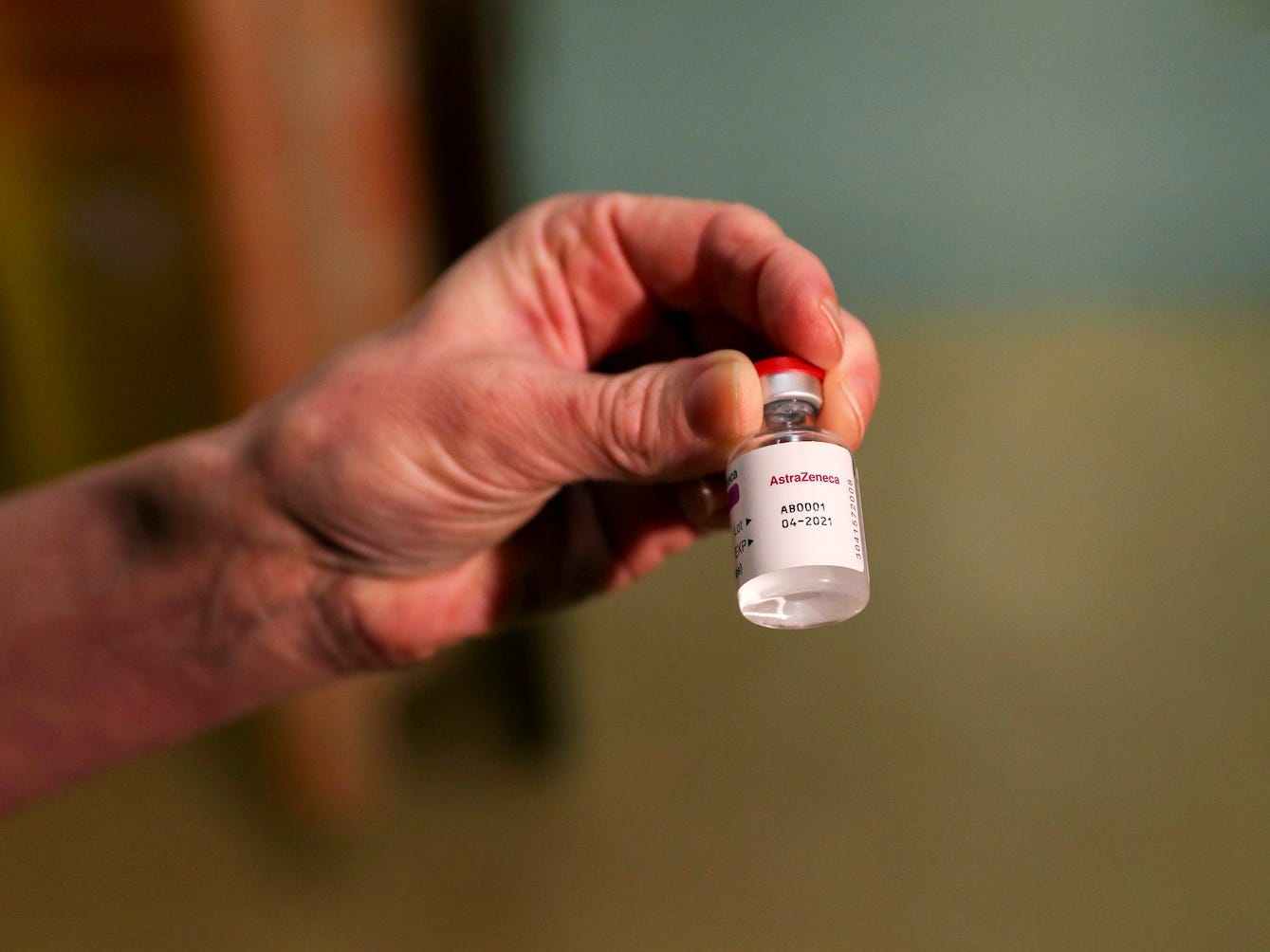
Steve Parsons/Pool Photo via AP
- Denmark became the first country to stop using AstraZeneca's COVID-19 vaccine Wednesday.
- Other shots were available and older people were immunized already, the Danish Health authority said.
- Denmark did not rule out re-introducing the vaccine at a "later date" if the "situation changes."
- See more stories on Insider's business page.
Denmark has stopped using AstraZeneca-Oxford University's COVID-19 vaccine, becoming the first country in the world to stop using the shot entirely, but did not rule out using it again at a "later date."
There is a "real risk of severe side effects associated with using the COVID-19 vaccine from AstraZeneca," the Danish Health Authority said in a statement Wednesday.
"We have, therefore, decided to remove the vaccine from our vaccination programme," it said. "We may re-introduce the vaccine at a later date if the situation changes."
Denmark put AstraZeneca's vaccine on hold on March 11, while the European Medicines Agency (EMA) investigated reports of unusual blot clots in people who had received it.
The EMA said April 7 the benefits of the vaccine in preventing COVID-19 that can make people sick and die, outweighs the risk of unusual blood clots in the brain, which were a very rare side effect of the shot. But individual countries can make their own decisions.
Søren Brostrøm, director general of the Danish Health Authority, reasoned that although AstraZeneca's vaccine was "effective", Denmark had other vaccines from Moderna and Pfizer-BioNTech available, cases were controlled, and older people who could benefit most from AstraZeneca's shot were already immunized.
Read more: COVID-19 Vaccine Tracker: AstraZeneca's shot proves safe and effective, and is headed to the FDA
So far, about 16% of people in Denmark have had at least one dose of a COVID-19 vaccine, according to Oxford University's Our World in Data. By comparison, the US has immunized about 36% of its population with a single vaccine dose.
Despite stopping AstraZeneca's vaccine, the Danish Health Authority said that it expected to have fully immunized all Danes over 16 years old by early August. People who have already had one dose of AstraZeneca's vaccine will get a second dose of an alternative vaccine, it said.
Dr. Hilary Jones, a UK GP, told Good Morning Britain on Thursday that Denmark could "regret" its decision if they see a third wave. "The AstraZeneca [COVID-19 vaccine] side effects are very very rare - one in a million," he said.
Other EU countries have restricted its use for certain age groups. The UK regulator recommended April 7 that Brits under 30 are offered an alternative vaccine.
It comes as the European Union is struggling to secure enough vaccines for member states. There were already vaccine shortages, following delays from Moderna, Pfizer and AstraZeneca. And on Tuesday Johnson & Johnson (J&J) paused its EU COVID-19 vaccine rollout following reports of unusual blood clots in the US.
The European Commission, who is responsible for securing the bloc's vaccine supply, said Wednesday it planned to increase its supply of Pfizer's vaccine.
"We need to focus now on technologies that have proven their worth," Ursula Von der Leyen, European Commission president, said in a video statement. "MRNA vaccines are a clear case in point."
-Jan Hamáček (@jhamacek) April 14, 2021
Meanwhile, Jan Hamacek, Czech interior minister, said on Twitter Wednesday that Czechia would buy excess doses of AstraZeneca's vaccine from Denmark.
"We are willing to buy AstraZenec from Denmark," he said.
